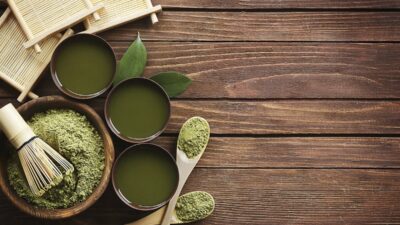Coffee vs tea – Which is the healthier choice? Discover the benefits, drawbacks, and key differences between these two popular beverages.
Coffee vs Tea
When it comes to choosing between coffee and tea, the debate has been ongoing for centuries. Both beverages have their unique flavors, caffeine content, and health benefits. Whether you’re looking for an energy boost or a relaxing drink, understanding the key differences can help you make an informed choice. In this article, we will compare coffee vs tea in terms of health benefits, caffeine levels, antioxidants, and more.
1. Nutritional Value of Coffee vs Tea
Coffee and tea both contain essential nutrients and bioactive compounds. Here’s a comparison:
- Coffee: Rich in caffeine, antioxidants, and small amounts of vitamins B2, B3, and B5.
- Tea: Contains antioxidants like catechins, polyphenols, and L-theanine, which promote relaxation.
While coffee provides a quick energy boost, tea offers a more gradual and sustained release of energy due to the presence of L-theanine.
2. Caffeine Content: Which One Gives a Better Boost?
Caffeine is the main stimulant found in both beverages. The caffeine content varies:
- A cup of coffee (8 oz) contains around 95 mg of caffeine.
- A cup of black tea (8 oz) has 40-70 mg of caffeine.
- Green tea has even less, typically around 20-45 mg per cup.
If you’re looking for a stronger energy boost, coffee is the better choice. However, tea provides a smoother, longer-lasting alertness without the jitters often associated with coffee.
3. Health Benefits of Coffee vs Tea
Both drinks offer numerous health benefits:
Health Benefits of Coffee
- Boosts metabolism: Coffee can aid in weight loss by increasing metabolic rate.
- Improves brain function: Enhances alertness, memory, and cognitive function.
- Reduces risk of diseases: Studies suggest coffee may lower the risk of Parkinson’s disease, Alzheimer’s, and type 2 diabetes.
- Rich in antioxidants: Helps fight free radicals and reduce inflammation.
Health Benefits of Tea
- Supports heart health: Green and black teas are known to lower blood pressure and cholesterol levels.
- Boosts immunity: The antioxidants in tea help strengthen the immune system.
- Aids digestion: Herbal teas, such as peppermint and ginger tea, improve digestion.
- Promotes relaxation: L-theanine in tea helps reduce stress and anxiety.
4. Antioxidants and Their Role in Health
Antioxidants play a crucial role in neutralizing harmful free radicals in the body.
- Coffee contains chlorogenic acids and melanoidins, which have anti-inflammatory properties.
- Tea is rich in flavonoids and catechins, particularly in green tea, which protect against cell damage and support heart health.
If antioxidant intake is your priority, green tea is one of the best choices.
5. Effects on Sleep and Anxiety
Since coffee has a higher caffeine content, it can lead to sleep disturbances, especially if consumed late in the day. High caffeine intake may also contribute to increased anxiety and restlessness.
Tea, especially herbal or decaffeinated options, is a better choice for evening consumption as it promotes relaxation and better sleep quality.
6. Weight Loss and Metabolism: Which is Better?
Both coffee and tea have metabolism-boosting properties:
- Coffee increases fat oxidation and boosts metabolism, making it a favorite for weight loss enthusiasts.
- Green tea contains EGCG (Epigallocatechin gallate), which enhances fat burning and helps in weight management.
Studies suggest that a combination of caffeine and catechins in green tea can promote weight loss more effectively than coffee alone. Learn more about green tea benefits here.
7. Impact on Heart Health
Both drinks can have positive effects on heart health:
- Moderate coffee consumption is linked to a reduced risk of heart disease.
- Tea, particularly green and black tea, has been shown to lower blood pressure and improve cholesterol levels.
However, excessive coffee consumption (more than 4 cups per day) may lead to increased blood pressure in some individuals. Read about coffee and heart health.
8. Dental Health: Staining and Acidic Effects
Coffee and tea can stain teeth, but coffee tends to be more acidic than tea:
- Coffee is more likely to cause acid reflux and enamel erosion.
- Tea is less acidic, making it a gentler option for people with sensitive stomachs.
To minimize staining, try drinking through a straw or rinsing your mouth after consumption.
9. Which One is More Hydrating?
Although both beverages contain caffeine, tea is generally more hydrating due to its lower caffeine content and higher water content. Herbal teas, in particular, contribute positively to daily hydration.
10. Sustainability and Environmental Impact
- Coffee production has a larger environmental footprint due to deforestation and higher water consumption.
- Tea production has a lower environmental impact, especially organic and sustainably sourced varieties.
If sustainability is a concern, choosing fair-trade coffee or organic tea can be a more eco-friendly option.
Conclusion: Coffee vs Tea – Which One Should You Choose?
Both coffee and tea have unique benefits, making the choice a matter of personal preference and health goals:
- Choose coffee if you need a strong caffeine boost, improved metabolism, and enhanced cognitive function.
- Choose tea if you prefer a gentler caffeine release, better hydration, and long-term heart and digestive benefits.
Ultimately, moderation is key. Balancing both beverages in your diet can help you enjoy the best of both worlds!
Which one do you prefer? Let us know in the comments below!




